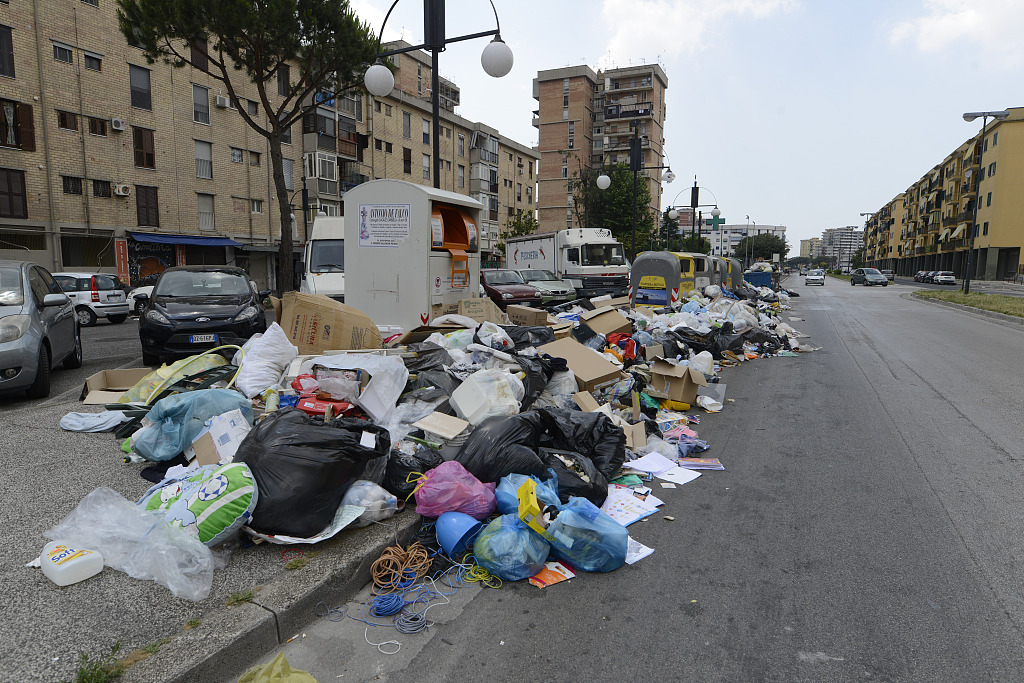Italy facing big garbage challenges despite improvements in recycling


ROME - Waste disposal continues to be a major challenge in Italy, despite major strides in recycling and being among Europe's leaders in phasing out single-use plastic.
Italy is on its way to becoming a European success story when it comes to recycling. For years, dragged down by low recycling levels in the southern part of the country, Italy appeared near the bottom of most lists ranking European Union countries by recycling levels.
But more recently, the country has climbed the rankings, according to director general of environmental association Legambiente, Giorgio Zampetti, who said Italy now sits in the top half of the table, with around 55 percent of the country's waste separated for recycling. That compares to around 47 percent for the European Union as a whole.
"There is still a big difference between the north and the south," Zampetti told Xinhua. "Northern regions like Veneto, Lombardy, and the Piedmont have some of the highest recycling rates in Europe. But Sicily (in southern Italy) remains a challenge."
Legambiente, Italy's largest environmental lobby group, is preparing its national report on waste.
Zampetti said there are some exceptions to the north-south trend: Campagna, the southern region that includes Naples, recycles nearly half its waste, though levels in Naples itself remain low. And Liguria, the northern coastal region that includes the port city of Genoa, has relatively low recycling levels.
"The whole country is making strides, though some areas are moving faster than others," Zampetti said.
Another area where Italy is making strides is in the reduction of single-use plastic. Apulia, the southern region that forms the heel of Italy's boot-shaped peninsula, this year became the first Italian region to outlaw all use of single-use plastic except for plastic water bottles -- two years before European Union rules required such a move.
"We see it as an important and symbolic step because it will give businesses more time to adapt," Eva Alessi, head of the sustainable consumption section with WWF-Italia, another major environmental lobby group, said in an interview. "The situation we find ourselves in now is not sustainable. Action has to start somewhere."
Single-use plastic breaks down into micro-plastics, which are particles so small they can enter the ecosystem as part of the food chain, in the air, or absorbed into beverages. The long-term health impacts of micro-plastics are so far unknown, since they have not existed long enough for them to be measured.
But despite these positive measures, the waste sector in Italy still have many challenges, analysts said. The country has too few disposal plants for recyclable waste, and the waste management system is not being upgraded fast enough to account for growing waste, much of it from tourism. Organized crime syndicates are involved in the sector in some parts of Italy, illegally dumping waste into the sea or into unlicensed pits.
As a result, much of the unrecycled waste in Italy is shipped abroad to countries with more developed waste management systems, a solution that is at once non-sustainable and expensive.
All told, around a quarter of Italian waste ends up in landfills, a figure that must be reduced to less than a tenth in the next 15 years.
























